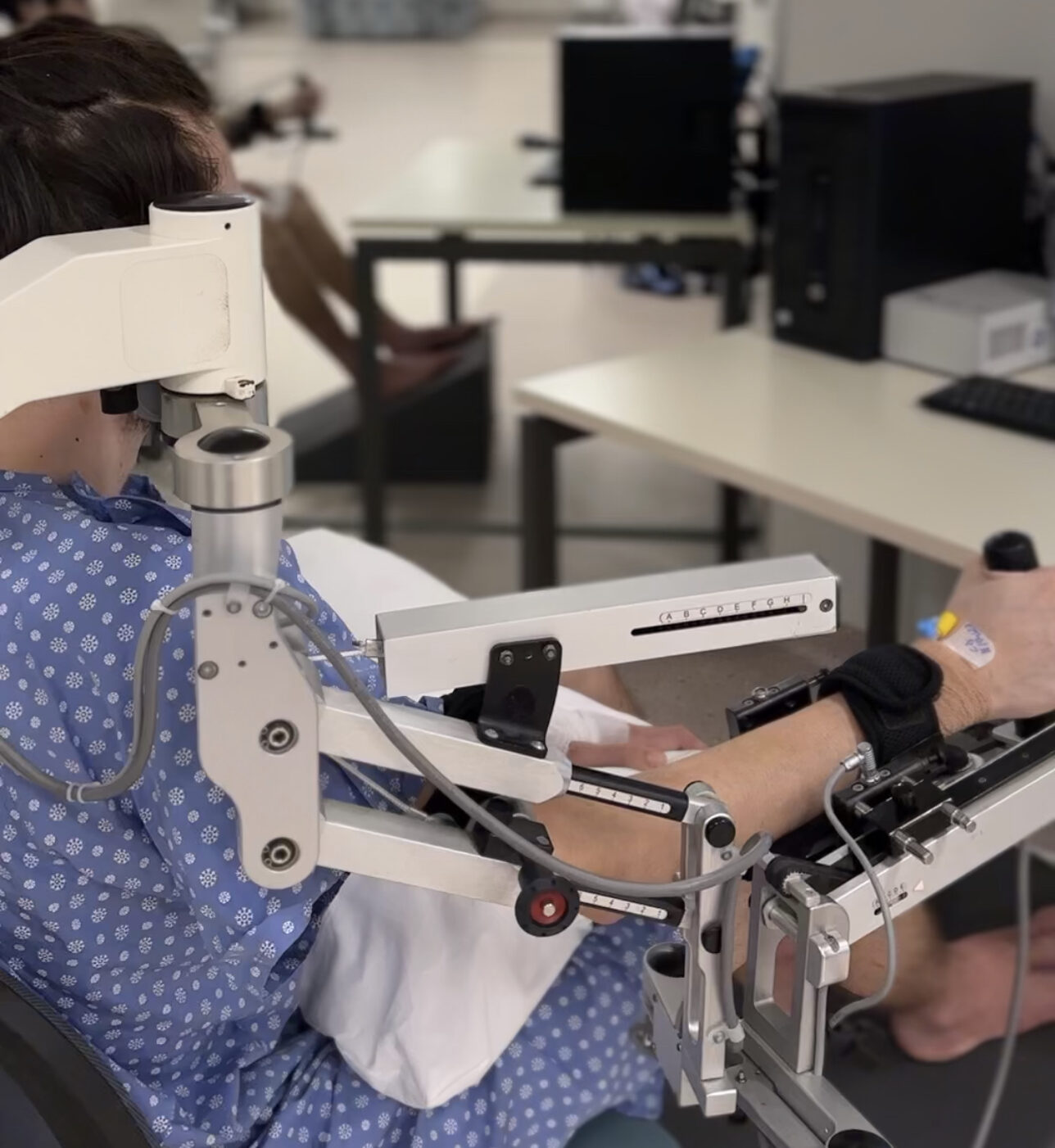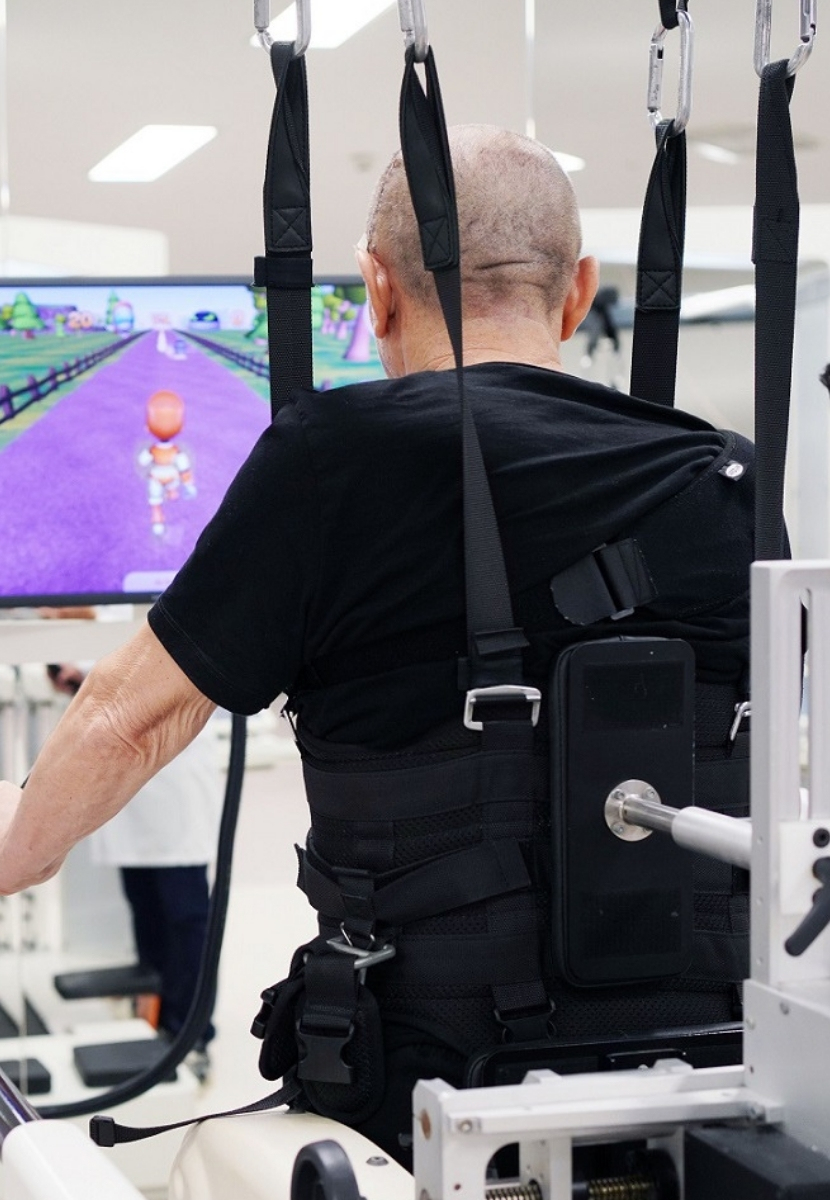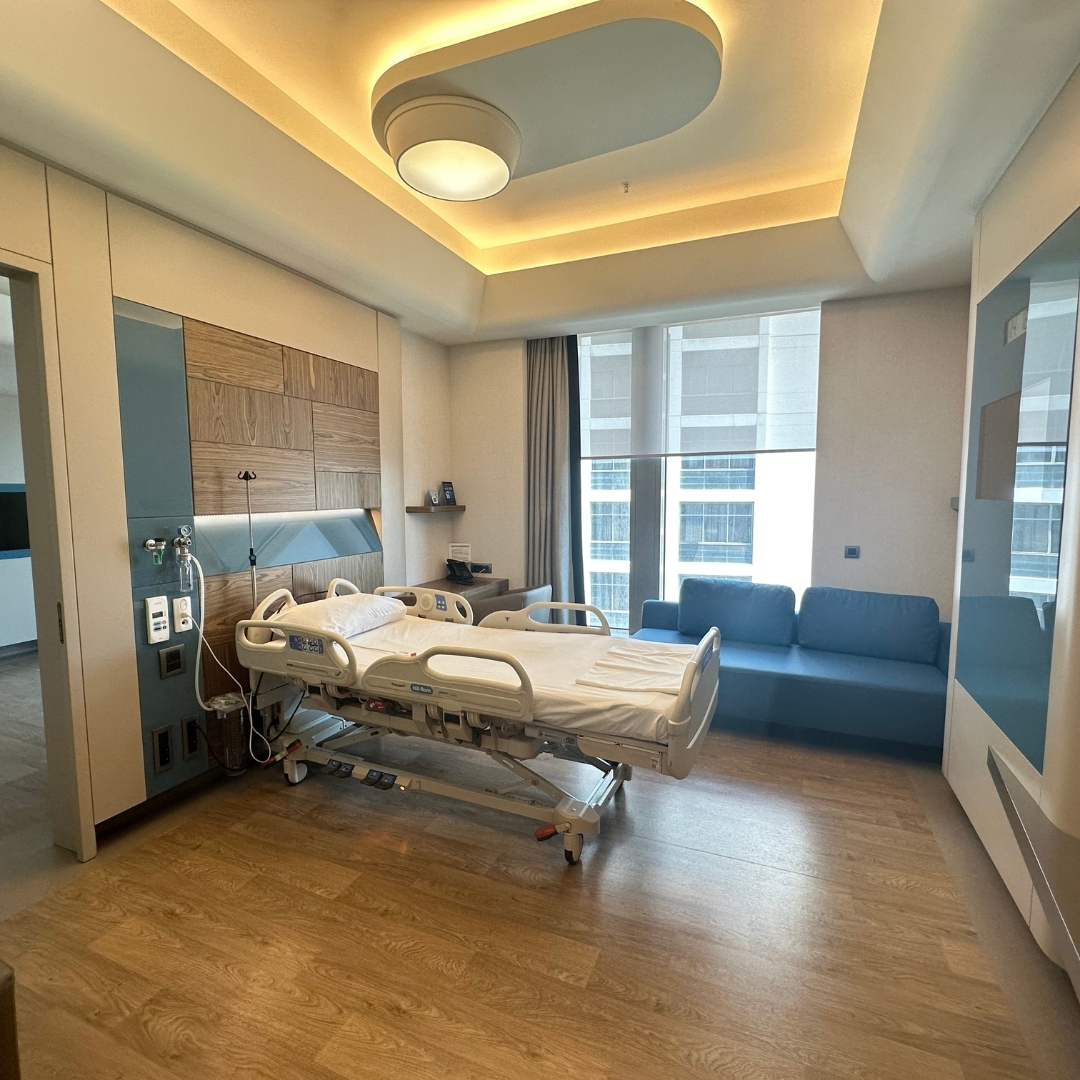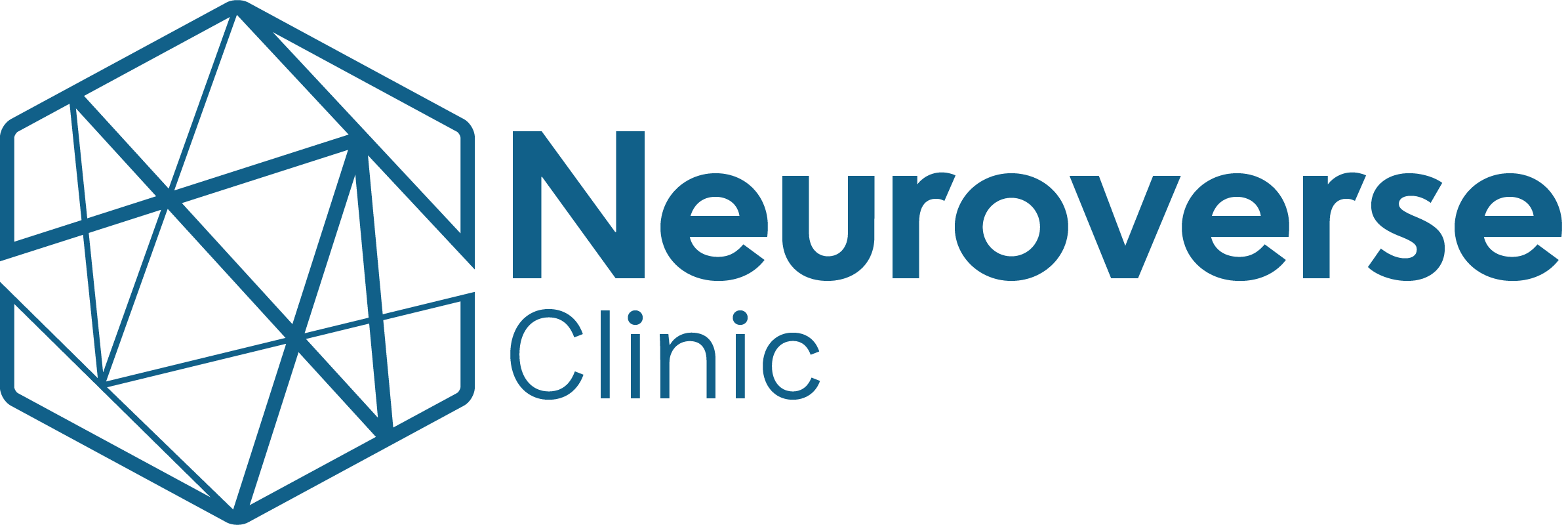
Brain Injury Treatment
Brain damage impacts each patient uniquely, leading to impairments that affect movement, self-care, daily activities, emotions, cognition, and communication, which may result in either permanent or temporary changes in functionality.
Initiating rehabilitation as early as possible is crucial for achieving optimal outcomes in patients with brain injuries.
The primary objective of rehabilitation is to educate and assist the patient in returning to their highest level of independence by regaining and relearning essential daily living skills.
At NeuroverseClinic, we recognize that each patient with a brain injury presents distinct challenges. Therefore, we collaborate closely with both patients and their families to develop a personalized treatment plan tailored to maximize each patient’s potential for recovery.
Brain Injury Treatment Program
NeuroverseClinic is dedicated to providing comprehensive physical, mental, and emotional rehabilitation throughout the entire continuum of care for both traumatic and non-traumatic brain injuries. Our focus on early rehabilitation, supported by a specialized team, is crucial for optimizing recovery from the profound effects of brain injury. Residential physical therapy is essential for regaining lost functions and facilitating recovery.
Intensive and comprehensive early rehabilitation significantly enhances the likelihood of success in restoring walking ability, hand and arm functions, eating, speaking, and social interaction.
Our holistic approach integrates top-tier medical treatment with intensive daily therapies. Your personalized treatment plan is developed based on your current condition and specific goals. You can receive up to 4-6 therapy sessions per day, each aimed at regaining lost skills:
- Physiotherapy: Conventional exercises enhance muscle strength and coordination, restoring mobility.
- Robot-Assisted Walking Training: This technology enables both adults and children to walk again and recover leg functions more rapidly and accurately than traditional physical therapy methods.
- Robotic Hand-Finger-Arm Training: Robotic devices aid in supporting and reducing the weight of the arm, while promoting active movement through intensive and repetitive treatment, thereby facilitating brain re-learning.
- Virtual Reality-Assisted Gait and Balance Training: Virtual reality environments offer diverse exercises to improve balance, gait, and cognitive function.
- Electrical Stimulation: This method helps prevent muscle wasting and strengthens affected muscles.
- Ergotherapy (Occupational Therapy): Enhances sensory and motor skills, improving daily living activities such as dressing, feeding, brushing teeth, meal preparation, and household management.
- Cognitive Therapy: Focuses on improving lost cognitive abilities, including memory, processing, problem-solving, social skills, judgment, and safety awareness.
- Swallowing Therapy: Utilizes video fluoroscopic evaluation to assess and restore swallowing capabilities as needed.
- Speech Therapy: Aims to recover abilities related to speaking, listening, writing, and understanding.
- Respiratory Therapy: Targets the relief of respiratory tract obstructions and assists in regaining physical activity and effort.

Frequently Asked Questions
Brain injury is a neurological condition that can affect individuals of any age. It is typically caused by a blow to the head or body, or by non-traumatic injuries.
The extent of the damage can vary based on several factors, including the nature of the injury and the force of the impact. Depending on the severity of the event, symptoms may be absent or only mildly noticeable. Some symptoms appear immediately following the event, while others may develop days or weeks later.
Patients with moderate to severe brain damage are usually admitted to a comprehensive inpatient rehabilitation program immediately after brain surgery and acute care in intensive care units.
The causes of brain injury can be classified into traumatic and non-traumatic categories:
- Traumatic Brain Injuries:
- Closed Brain Injury: Occurs when the skull is not penetrated, but there is damage due to rapid forward or backward movement and shaking of the brain inside the skull. This can cause bruising and tearing of brain tissue and blood vessels. Closed brain injuries are often the result of traffic accidents, falls, or contact sports.
- Open Head Injury: Occurs when there is a fracture in the skull due to an object piercing the brain, such as a bullet, blunt object, or piece of shrapnel.
- Non-Traumatic Brain Injuries:
- Paralysis due to brain tumors
- Infections of the brain membrane and tissue, such as meningitis or encephalitis
- Exposure to toxic gases or lead poisoning
- Brain deprivation of oxygen (hypoxic-anoxic brain damage)
Common symptoms of traumatic brain injury include:
- Blurred vision
- Muscle weakness or fatigue
- Confusion and memory problems
- Sensitivity to noise and light
- Headaches
- Loss of consciousness
- Heightened emotions
- Difficulty speaking (aphasia)
- Vomiting
Healing of brain and nerve cells begins immediately after an injury and continues for weeks. Research has demonstrated that early initiation of rehabilitation yields better outcomes. Very early treatments, typically within the first few weeks, are highly recommended. Evidence indicates that early, intensive, and comprehensive rehabilitation—whether for inpatients or outpatients—plays a crucial role in positively influencing the reorganization of the nervous system and helps patients achieve the highest possible level of functionality.
In this context, brain injury rehabilitation involves a series of treatment and training programs designed to improve patients’ movement, balance, speech, and cognitive functions. These programs are tailored to the individual needs of each patient and may include physiotherapy, occupational therapy, robotic rehabilitation, swallowing and speech therapy, and cognitive therapies.
During inpatient physical therapy, patients collaborate with a multidisciplinary team including physiotherapists, occupational therapists, rehabilitation nurses, speech and swallowing therapists, respiratory therapists, psychologists, and dietitians, all under the guidance of a Physical Therapy and Rehabilitation Specialist Physician. Inpatient stroke rehabilitation requires continuous 24-hour care and treatment, typically provided in the first few weeks or months following a stroke when intensive treatment is crucial.
Inpatient rehabilitation is designed to maximize recovery during the transition from inpatient to outpatient care, incorporating both cognitive and exercise-based programs.
Upon admission to our inpatient service, each patient receives a fully personalized rehabilitation program tailored to their specific needs, with treatment sessions lasting 4-6 hours per day. The rehabilitation process includes an intensive exercise program utilizing robotic rehabilitation devices, comprehensive consultations for a holistic approach, and periodic patient evaluations.
Our comprehensive, intensive robotic rehabilitation, combined with medical treatment for the brain and other organs, offers recovery that is significantly faster and more effective—more than twice as effective—compared to traditional rehabilitation.
Key features of our program include:
- 4-6 hours of one-on-one rehabilitation daily
- Multidisciplinary patient care across all medical specialties
- 24-hour physician supervision
- A personalized robotic neurorehabilitation program addressing all of the patient’s needs
The average length of stay for patients undergoing inpatient physical therapy for neurorehabilitation is approximately 8 weeks. However, this duration may vary depending on individual factors, including the extent of functional loss, the severity of brain or spinal cord damage, and the patient’s response to treatment. Once the patient’s condition stabilizes, outpatient treatments may be recommended.
Your personalized rehabilitation program will be designed and assessed on a weekly basis to ensure consistent progress. For optimal rehabilitation outcomes, it is crucial to provide reliable and objective data regarding the patient’s progress throughout the treatment process. Discharge decisions will be made based on these evaluations.
Here are 4 key factors for successful rehabilitation:
- Hospital Providing Multidisciplinary Support: Access to a wide range of medical specialties and services.
- Experienced Rehabilitation Team: Highly skilled physical therapists and rehabilitation specialists.
- Advanced Technological Support:
- Walking Robots
- Hand Robots
- Arm Robots
- Advanced Walking and Balance Robots
- Integrated Sensors & Virtual Reality
- Body Weight Support Systems
- Touch Screens
- Unlocking the Full Healing Potential: An intensive and comprehensive treatment program lasting approximately 4-6 hours per day to maximize recovery.
Daily Schedule
- 08:00 – Breakfast
- 09:00 – Physiotherapy
- 10:00 – Robotic Walking Training (Lokomat Pro or C-mill VR Plus)
- 11:30 – Electrotherapy
- 12:00 – Lunch
- 14:00 – Respiratory Therapy
- 14:30 – Robotic Finger Training (Amedeo)
- 15:00 – Robotic Hand-Arm Training (Armeo Spring)
- 16:00 – Ergotherapy
- 17:00 – Physiotherapy, Speech Therapy
- 18:00 – Dinner

